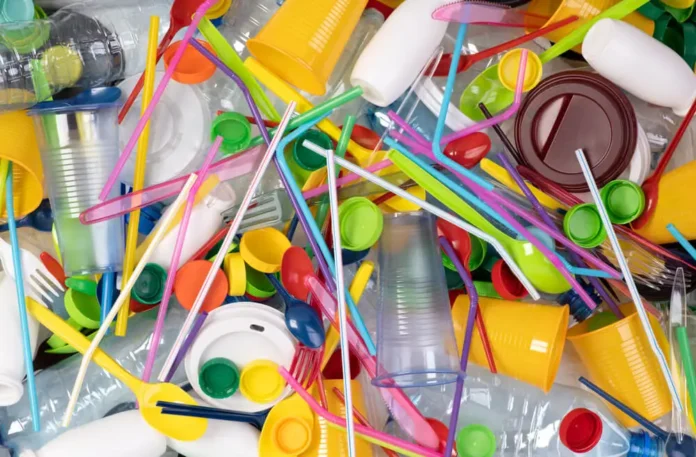Colombia will implement Law 2232, effective July 7, 2024, banning certain single-use plastic products. The law aims to reduce environmental impact. This involves the prohibition of six such products.
The mentioned law, issued by Congress on July 7, 2022, establishes “measures aimed at the gradual reduction of the production and consumption of certain single-use plastic products.” The document lists 14 types of single-use plastics that must be banned in the Colombian market and replaced according to deadlines set by the regulation.
Which Single-Use Plastic Products Will Be Banned Starting in 2024?
Starting July 7th, Colombia will prohibit the introduction to the market, commercialization, and distribution of six of the 14 single-use plastic products. These are:
- Point-of-sale bags used to pack, carry, or transport packages and goods, except for reusable or industrial-use bags.
- Bags used to pack newspapers, magazines, advertisements, and invoices, as well as those used in laundries to pack washed clothes.
- Rolls of empty bags in commercial establishments for packing, carrying, or transporting packages and goods, or for carrying bulk foods, except for raw animal products.
- Drink stirrers and straws.
- Plastic supports for balloon pumps.
- Plastic supports for cotton swabs or flexible cotton-tipped swabs.
Which Products Must Gradually Stop Being Commercialized?
The other eight products on the list will be completely banned by 2030. These include:
- Containers or packaging, containers, and bags to contain non-prepackaged liquids for immediate consumption, to-go, or for delivery.
- Plates, trays, knives, forks, spoons, cups, and eating gloves.
- Confetti, tablecloths, and streamers.
- Containers or packaging and containers for containing or carrying non-prepackaged foods or foods in accordance with current regulations, for immediate consumption, to-go, or for delivery.
- Sheets for serving, packing, wrapping, or separating immediate consumption foods, used to-go or for delivery.
- Handles for dental floss or single-use dental floss holders.
- Adhesives, labels, or any distinguishing mark affixed to vegetables.
- Packaging, containers, or any container used for marketing to the final consumer. This includes fruits, vegetables, and fresh tubers that naturally have peels; fresh aromatic herbs, fresh vegetables, and fresh mushrooms.
Exempt Products
Not all single-use plastic products will be eliminated in Colombia. The law provides exceptions for certain products, including those used in medical contexts, for food preservation, and others that present specific risks to human health or the environment. These are:
- Items used in medical settings to maintain asepsis and hygiene, as well as for the preservation of medical, pharmaceutical, or clinical nutrition products when no alternatives are available.
- Plastic products that help contain hazardous chemicals to human health or the environment and require single-use plastic for safe handling.
- Containers used to store liquid foods, animal-based beverages, and moist food products that need disposable plastics for food safety reasons.
- Plastic products used in healthcare facilities and by people with disabilities.
- Packaging and containers designated by the National Administrative Department of Statistics (DANE) to calculate the consumer price index (CPI) or for the family basket.
- Plastics used to contain or package hazardous waste according to current regulations.
- Products made with 100% recycled plastic from national post-consumer material, certified by government-accredited bodies.
- Straws attached to containers up to 3,000 milliliters (ml), with a retention system to ensure their collection and recycling, provided they contain family basket products, school feeding programs, or products that aim to ensure food security.
What Should Merchants Do to Avoid Being Affected by the Prohibitions?
The law states that companies or merchants who introduce to the market, sell, or distribute these types of products will have until the prohibition’s effective date (according to stipulated dates) to gradually replace these products with sustainable alternatives. These alternatives include reusable or biodegradable non-plastic materials or biodegradable plastics under natural environmental conditions.
The law will also affect consumers, who will need to replace these plastics with other options. For example, the Ministry of Environment published a resolution stating that public entities must gradually stop acquiring the eight plastic products to be banned in Colombia by 2030, starting on July 7 of this year.
Additionally, the resolution establishes that public entities should direct their purchases towards alternatives like recycled plastic materials. These alternatives include products made with 100% recycled plastic raw material from national post-consumer material, among others.
Keep to date on Local News.

